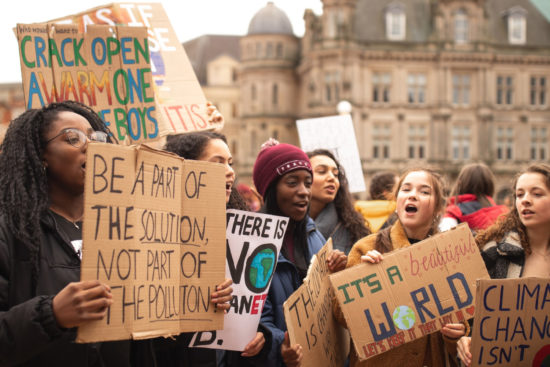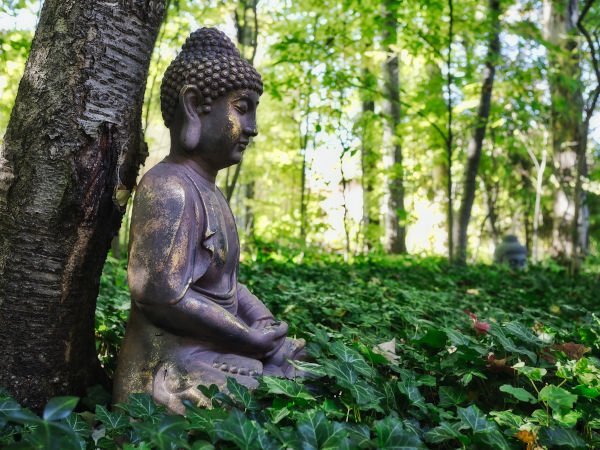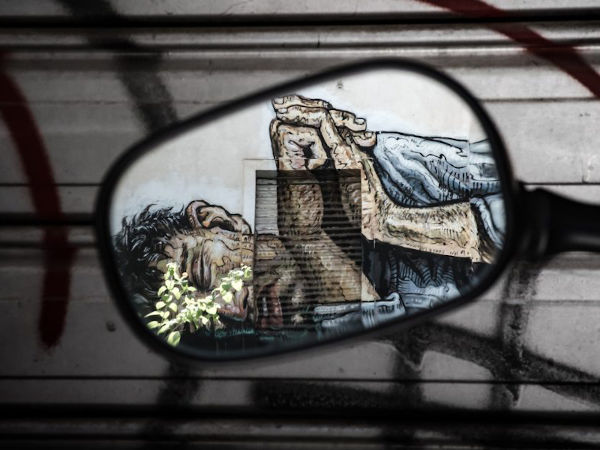If Knowledge is Power, Why is Academia Such a Disempowering Place?
The phrase, “knowledge is power” sets up a modern worldview that sees knowledge as a virtue. However, critical theory and post-colonial research has revealed that the idea of power has much to be critiqued and unpacked. Therefore, I come to question of what kind of power does academic knowledge yield? When knowledge production is fueled by uncertainty and university-endorsed values are based on judgements, we are building a society of fear and shame. Is this the kind of power we want to produce in the world? Misaligned power inevitably disempowers someone in its process. However, this power-struggle is the opportunity to learn the power of choice in creating empathetic paradigm shifts in the world.
In between love and hate is wisdom
Admittedly, I have a love-hate relationship with academia. Completing a PhD has been the most fruitful phase of my life so far in learning about myself and my relationship with the world, but the experience has also brought with it an awareness of the resistance to my own internalized oppression, my struggles with trying to let go of needing external validation, and the uncomfortable bitterness of feeling rejected for being myself within a hegemonic system.
The irony is that academia is the place that I first started to develop self-empowerment, not directly as an academic lesson, but indirectly by the constraints of disempowerment. That is, I learned that some battles, those that preserve our personal integrity, must be stood up for to protect the wholesome world we want to build—even if the battle is as trivial as a footnote in my dissertation.1
In this blog post, I explore how academia can be a disempowering place. Despite any lingering feelings of bitterness my wounded ego may still hold from past personal experiences, the exploration is meant as a truth-seeking endeavour to support the paradigm shift we need in creating a more supportive educational system. Understandably, not everyone in academia will agree with my premise here (likely as a need to protect their own egos), but paradoxically, the lesson I learned through my research is to honour one’s individual wisdom, including what I feel and know, however different this knowing may be from those of others.
The polarization of universities
The phrase, “knowledge is power,” generally attributed to Francis Bacon in his work Meditationes Sacrae (1597), sets up a modern worldview that envisions knowledge as a virtue. However, with the development of critical theory and post-colonial research in the 20th century, the idea of power within social philosophy has much to be critiqued and unpacked. Therefore, the phrase has lead me to question what kind of power does academic knowledge yield?
Let’s imagine two types of power, one that’s apparent and in your face, and another that’s inconspicuous and understated. I assume that the latter scenario is ultimately more powerful as an agent of change than the former. The metaphor of academia as the “ivory tower” demonstrates this situation. Insinuating that universities are privileged secluded environments cut off from the realities of the world conceals the fact that universities have always been the centre of cultural resistance and cultural change.
For example, universities have been the epicenters of violent censorship (e.g., the Chinese and Iranian Cultural Revolutions), as well as the place of youth activism all over the world throughout modern history. In parallel to today’s globalized and sociopolitically charged world, seemingly shielded by superficial stability in many people’s individual lives, the university can also be considered as place of polarity: the birthplace of radical activism in juxtaposition to conservative traditions.
For the most part, I avoid anything that has to do with political radicalism, but nevertheless, I admit that there is a place for it in disturbing the status-quo. However, like a pendulum that is perpetually oscillating in opposite directions by its own momentum, can either radical activism or preserving conservative values serve our collective desires for a better world (of justice, sustainability, compassion etc.)? If conservatism is a couch-potato hamster, then radicalism without awareness is like the hamster getting stuck running endlessly on its own hamster wheel.
Continuing with the pendulum metaphor, I deduce that our dreams of a better world is found at the centre of the moving pendulum—the moment of surrendering to stillness, to peace, to the nature of the earth’s gravity. Ironically, what propels the pendulum into motion are the stories we attach to our dreams. What are the stories behind our collective dream of a better world? What are the predominant stories that drive our pursuit of knowledge, which consequently form our ethical practices?


Youth activism (left, photo by Callum Shaw on Unsplash) in contrast to academic tradition as symbolized by the library (right, photo by Giammarco Boscaro on Unsplash)
Knowledge production as an industry
Although we could arguably concede that there were cases and eras in history when knowledge was purely motivated by curiosity (for example, in historian Richard Holmes’ interpretations of Romantic Science in his book The Age of Wonder, 2008), my experience as a graduate student has convinced me that contemporary knowledge production in higher education is maintained by a meticulously well-oiled “production line.” Students, educators, researchers, administrators, publishers, language-citation associations, conference organisers, and so on, form an industry that constructs bulks of information that continues to build upon itself.
Similar to the roots of capitalism, this system of modern knowledge production is dependent on the principle of ever-lasting growth. If we ignore the economic drivers behind this knowledge production system for a moment, what else is left as its fuel? I speculate that what energizes this insatiable desire to know more and to answer more is not the curiosity of our “beginner’s minds”, but rather the need to counter a collective insecurity for the uncertainty of not knowing.
Fear of uncertainty turns to moral judgment
But supposedly, knowing more can help us make better decisions? If so, knowledge would presumably form the foundations to our ethical principles. This makes a lot of sense if ethics was only a personal matter, since my knowledge is not the same as your knowledge. What perplexes me though, is how, with a little skip in logic, informed decisions of my own can become judgments that I make about you and your decisions. I am not alone in this behaviour of using my knowledge to form binary judgments.
From the polemics of environmentalists to social justice activists, opinionated politicians, and eager citizens commenting on social media posts, judgments are made towards those people, real or projected, who do not align with the original ethical agent. And so, the story of contemporary ethics is one about assessing violations. Using binary categories of what is “right” or “wrong” behaviour (or oftentimes, just thoughts), ethics is predominantly considered as a process of judging others for not choosing the “appropriate” side of the equation.
Oftentimes, we internalize this behaviour and judge ourselves.
Conversely, not all worldviews are created from stories based on a desire for certainty and moral binaries. For example, Daoism sees the void of nothingness as the source of manifestation within a cosmology of complementary yin and yang energies. In the case of ethics, binary judgment is futile because the “good” always comes with the “bad.”
In contrast, the Cartesian worldview, in which much of the world operates from, finds uncertainty and non-judgment an impossible challenge, and thus creates a cycle of insecurity when certainty is unavailable, and judgment is ineffective. Furthermore, the avoidance of this discomfort, by searching for more certainty and more things to condemn, results in a knowledge structure based on fear and a moral structure based on shame.

Can knowledge be innocent?
When knowledge production is fueled by uncertainty and university-endorsed values are based on judgments, we are building a society of fear and shame. I can guarantee that this society is in direct opposition to the world we desire in our hearts. That is why knowledge is indeed powerful, more commanding than we’d like to admit, because knowledge without reflexivity and compassion can lead us into dystopia.
In building a flourishing world, the opposites of uncertainty and judgment are not certainty and solidarity, but rather curiosity and openness. In my limited understanding of the world’s history, I wonder, have universities ever been a place of pure curiosity and wonder without the baggage of power? I’d just assume that somewhere in space-time that this kind of university has existed. Yet, in today’s university prototype are long-standing social tensions that we can’t ignore:
- University as a place of social radicalism reveals the tension between freedom and suppression.
- University as a place of elitism (aka the “ivory tower”) reveals the tension between privilege and equality, and meritocracy as the system developed to unsuccessfully negotiate this tension.
- University as a corporation in a neo-liberal world reveals the tension between knowledge as a commodity and knowledge as an essential process to self-discovery.
All the roles that universities have taken, as listed above, are forms of power. With misaligned power comes power-struggles. Regardless of how an individual engages with these power-struggles, what’s left at the end of the day is a place of insecurities. Put simply, universities are environments with inherited social-political traumas, with symptoms rising as obvious warning signs as well as symptoms hiding within systemic undercurrents.
Knowledge can only be innocent when we choose to protect the innocence of knowledge. That means becoming aware of and choosing to break free from all academic traditions that question our worthiness, lovability, and the right to our own personal truth. When I say breaking out of academic traditions, I don’t just mean the old elitist traditions or bureaucracy. More importantly, I mean breaking out of being captured by the social-political forces that the university collective unconscious (aka group-think) can’t help but get caught into.
The motto that A Flourishing Commons was built upon embodies the paradigm shift we need: Turn knowledge into wisdom; change the world by loving yourself.
A good place to start in this mission is to ask ourselves, what kind of knowledge do we want to yield?
- What may seem like a normal and trivial academic gesture can be an example of systemic patriarchal oppression. The example I am referring to here was when I was asked by my dissertation defense committee to change a citation in my dissertation from Eckhart Tolle (A New Earth, 2005) to an Indigenous scholar, of whom I had not read, in reference to land and belonging according to Indigenous and Settler worldviews. The request assumes that there is a (political) appropriateness to published knowledge even if it overrides the truth of how a particular knowledge is attained. Thankfully, my supervisor and I were on the same page: this scenario illustrated a key point that I was addressing in my research, that individual experiences are valid forms of knowledge, and this anecdotal experience was footnoted instead of changing the citation as requested. ↩︎






